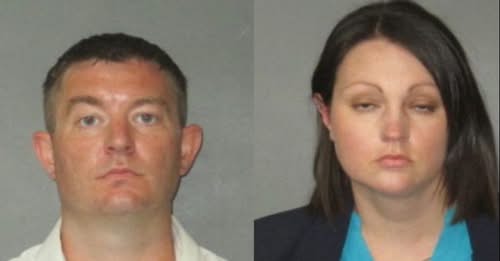Louisiana Supreme Court Rules Statements Admissible in Infant Death Case Involving Baton Rouge Couple
New Orleans, LA – In a controversial and closely watched ruling, the Louisiana Supreme Court has determined that prosecutors can use statements made by a Baton Rouge couple to police in connection with the death of their 8-week-old son, Dominik Noehl. The decision comes more than two years after the tragic incident that led to murder charges against the child’s parents, John and Analise Noehl, and has reignited a broader conversation around Miranda rights, custodial interrogations, and parental duress in hospital settings.
The court’s 6-1 decision, issued Friday, reverses an earlier ruling by District Judge Fred Crifasi, who had barred prosecutors from using the statements made by the couple during hospital interviews—conducted while their infant son was still alive but in critical condition.
The Case and Timeline
According to court documents and police reports, John and Analise Noehl were indicted by a grand jury on March 8, 2023, in the death of their infant son Dominik. At the time of the indictment, details from the Baton Rouge Police Department revealed that the baby had suffered extensive trauma, including a skull fracture, internal bleeding, multiple broken ribs, and bruises on his back. John Noehl allegedly told officers that Dominik had fallen from a rocker a few weeks prior to becoming unresponsive.
While Dominik was undergoing treatment at a hospital in Baton Rouge, detectives separately interviewed both parents—speaking with John for 12 minutes and Analise for 18 minutes. The interviews were not preceded by any formal Miranda warnings, and the parents were not under arrest at the time. However, after the child’s death, prosecutors brought murder charges against both individuals, citing those interviews as key evidence.
Attorneys for the defense subsequently filed motions to suppress the interviews, arguing that the couple was effectively in custody and under intense emotional duress, and that their constitutional rights had been violated due to the absence of Miranda warnings. Judge Crifasi agreed with the defense and ruled the statements inadmissible.
Supreme Court Decision
In its majority opinion, the Louisiana Supreme Court disagreed, asserting that the interviews did not occur in a “police-dominated atmosphere” and therefore did not qualify as custodial interrogation requiring Miranda warnings.
“Both parents were allowed to leave the hospital room and ultimately the city at the conclusion of the interview,” the court wrote. “These circumstances do not rise to the level of a ‘police-dominated atmosphere.’”
The court emphasized that officers were non-confrontational and that the setting, while emotionally charged, did not constitute a restriction of the couple’s freedom of movement. Therefore, the justices concluded, the statements could be lawfully introduced at trial.
Dissenting Opinion
The lone dissent came from Justice John Michael Guidry, who voiced deep concern over the circumstances under which the statements were taken. In his dissent, Guidry emphasized the couple’s emotional vulnerability, noting they were questioned while their infant son was on life support and shortly before he passed away. He argued that failing to inform the parents they were free to leave—especially during such a traumatic period—was constitutionally problematic.
“Police questioned the pair while they were under extreme emotional duress,” Justice Guidry wrote. “To say that such an environment was not coercive undermines the protections that Miranda is intended to provide.”
Further Developments
The case has taken an unexpected turn with the death of John Noehl, who passed away in March 2025 at the age of 37, as confirmed by online obituaries. The cause of his death has not been publicly disclosed. With John’s passing, the focus of the prosecution may now rest solely on Analise Noehl, who is expected to stand trial later this year.
Legal analysts suggest that the court’s ruling could set a significant precedent regarding how law enforcement handles interviews with potential suspects in sensitive medical settings, especially involving minors.
Community Response and Broader Implications
The Supreme Court’s ruling has elicited strong reactions from both legal advocates and the general public. Victims’ rights groups have applauded the decision, citing the need for justice in the death of an infant who endured immense suffering. Civil liberties organizations, however, have expressed concern that the ruling may erode Miranda protections and open the door to coercive police practices in emotionally charged environments.
“This decision could have a chilling effect on how vulnerable individuals interact with law enforcement in hospitals or during medical emergencies,” said one representative from the ACLU of Louisiana.
As the case proceeds, the state continues to wrestle with the heartbreaking details of Dominik Noehl’s death and the legal complexities surrounding parental responsibility, constitutional rights, and due process.
The story of Dominik—an infant whose short life ended in violence—remains a painful chapter in Baton Rouge’s history. With the court’s ruling, the path to justice will continue in the courtroom, where prosecutors will now be permitted to present the controversial interviews as part of their case.

Leave a Reply